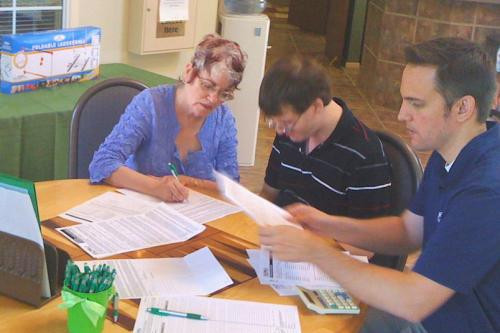
A Life and Place of My Own: The Philosophy of Intentional Communities of Washtenaw
Parents everywhere have concerns about what will happen to their children and families after they are gone. On an abstract level, older generations worry about whether they are leaving their children better opportunities to live the good life, meaning a life safe and free from harm as well as one offering freedom to make ethical choices and to actively engage with others in the places where they live.
For parents of children with development disabilities, this concern is not an abstraction.
Consider that, nationally, 76 percent of all adults with development disabilities live with their parents.Consider too that, like everyone else upon becoming an adult, individuals with developmental disabilities want to be on their own, live in a place of their own, have enduring friendships and forge ties to their community.
In this podcast, we talk with Intentional Communities of Washtenaw board members Al Blixt and Rich Mc Eachin about ethical issues they confront as members of a group of legacy-minded, local families who have joined together to create places for family members with developmental disabilities to expand their opportunities for independence and friendship.
From signing a lease for a new apartment in one of the ICW cohousing units and playing in the 'house' band to helping organize and attend social events, these photos show how the philosophy of this unique and growing movement for adults with developmental disabilities is building its own committed and powerful legacy.
We can't help but think that ICW may be intentionally showing how we can all contribute to ending the isolation of all people in our community with a wide range of disabilities, who like everyone else, wish to have a life and place of their own.

